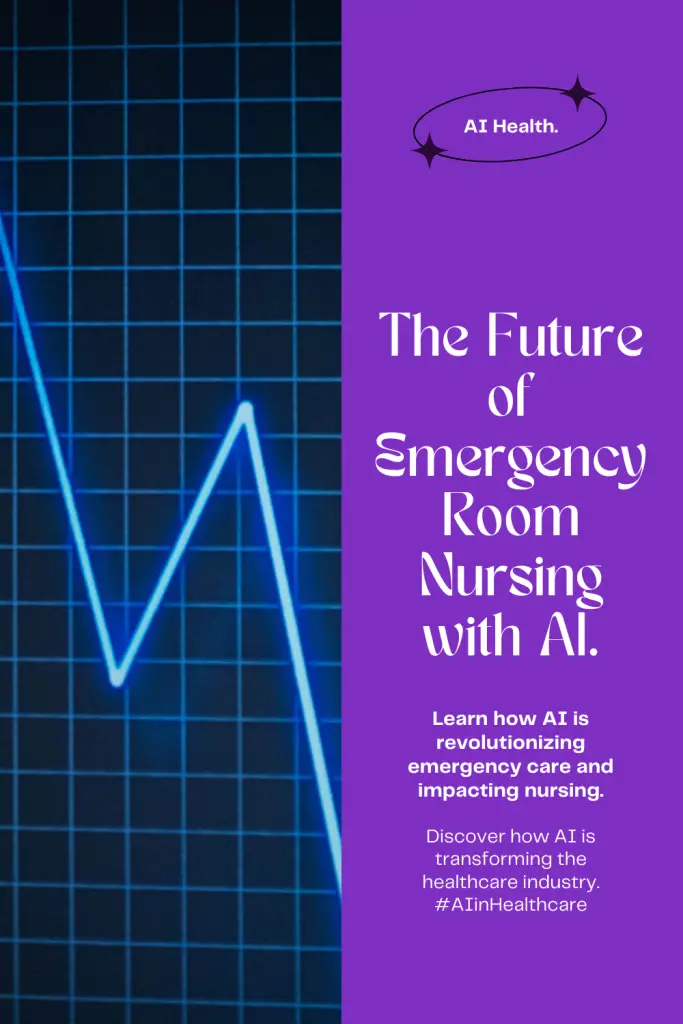Introduction
Artificial Intelligence (AI) is becoming a game-changer in many areas, including healthcare. One specific place where it can really make an impact is emergency triage.
If you’re a nurse working in this high-stress, fast-paced environment, you might be wondering how AI could fit into your workflow.
This article aims to explain why embracing AI in emergency triage is not just beneficial but crucial for nurses. From speeding up decision-making to reducing mistakes, AI can play a vital role in improving healthcare outcomes.
Faster Decision-Making
The Need for Speed
In emergency rooms, every second counts. Nurses have the challenging job of quickly deciding who needs immediate attention and who can wait a bit longer. The faster these decisions are made, the better the outcomes for patients.
How AI Helps
AI can swiftly analyze a vast amount of data—from patient history to current symptoms—and suggest what needs to be done. These recommendations can serve as a helpful second opinion that nurses can consider while making choices. The result? Faster, more efficient decision-making that allows nurses to focus more on providing direct care to patients.
Better Accuracy
The Cost of Mistakes
Mistakes in emergency triage can be very costly. They can lead to delayed treatment and sometimes even loss of life. While nurses are highly trained and skilled, errors can still occur, particularly when the ER is crowded, and stress levels are high.
Why Nurses Should Embrace Artificial Intelligence in Emergency Triage
AI tools are designed to catch such errors by analyzing a wide range of factors. These systems can cross-reference current cases with past cases and current medical research to provide more accurate recommendations. They can help nurses to spot symptoms or issues they may have missed, leading to better patient care.

Reducing Burnout
The Reality of Nurse Burnout
Nursing is a physically and emotionally demanding job. Long hours and the constant need for alertness can lead to burnout, which is bad for both nurses and patients.
Lightening the Load
AI can help by taking over some of the more routine tasks like data entry, initial patient assessment, or monitoring vital signs. This gives nurses more time to focus on complex patient care activities that require a human touch, reducing the risk of stress and burnout.
Staying Updated
The Challenge of Keeping Up
The field of medicine is always changing, with new research and treatment methods being developed regularly. For busy nurses, finding the time to stay updated can be a real challenge.
AI to the Rescue
Artificial Intelligence can scan through the latest medical journals, research papers, and treatment guidelines in a fraction of the time it would take a human. AI can then summarize this information and offer it to nurses in an easily digestible format, helping them to stay current with the least amount of effort.
Preparing for the Future
The Inevitability of AI
AI is rapidly becoming a part of mainstream healthcare. While it may seem daunting, the sooner nurses become familiar with this technology, the better equipped they will be for future developments.
Skills for Tomorrow
Learning to work alongside AI doesn’t mean that nurses will become obsolete. Rather, it will add another tool to their skill set. It allows nurses to offer even better patient care and makes them more valuable members of the healthcare team.
Conclusion
To sum it up, artificial intelligence has a lot to offer to nurses in emergency triage.
Whether it’s speeding up decision-making, reducing errors, or helping to avoid burnout, AI can be a powerful ally in providing top-notch patient care.
The future of healthcare is here, and it includes AI. As a nurse, getting ahead of this curve by embracing these technologies can be both professionally rewarding and beneficial for your patients.
Related Articles
Artificial intelligence in nursing informatics
Role of artificial intelligence in nursing practice
Examples of artificial intelligence in nursing
Nursing informatics future trends
Benefits of Artificial Intelligence in Emergency Triage Nursing

